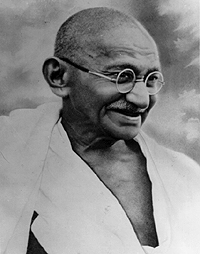
The English influenced India's politics greatly during their colonization times. Language and religion are the basic factors that shape culture; hundreds of years of colonization spread the English culture into India. Today, English is one of the official languages of India. In the case of religion, Christianity is one of the most important religions in India.
In politics, the English brought their governmental structure to India. The modern world depicts many similarities between the two countries in terms of governmental structures. In India, there is a Prime Minister who is the head of the Council of Ministers. The Indian Constitution was formed in 1950 and was inspired by the U.S. Constitution and British constitutional; it was amended many times.
Around the 1600s, an organization called the East India Company established a base in India. It was the first permanent settlement of Europeans in India. The company was serving as a trading station. This way, the British could import and export goods at a lower cost. It was also a convenient way to establish businesses in the eastern world. When fully established, the company started to deal with political matters in India. The War of Plassey gave the company the right to collect taxes. Later, they gained more power by defeating the natives in local riots. The Doctrine of Lapse by Daihousie stated that local British dominions have the right to take fortunes from rich natives who do not have heirs. As time went on, the East India Company made further progress by gaining more territories, defeating more natives and make their own laws. By the mid-1800s, the company was controlling a considerable portion of India.
In 1857, the natives wanted to be free from the power of the East India Company. The natives could not practice their religions, and were discriminated against even though they considered it their land. The Sepoy Rebellion occurred because of a rumor that gunpowder cartridges were greased with the fat of hogs and cows. The Indian soldiers were commanded to bite into these to open them to use for battle, but the hog is considered unclean by the Muslims and the cow is sacred to the Hindus, so neither group would obey the command. The Indians lost. The rebellion resulted in the British Crown taking over the Indian Administration.
From 1858 to 1947, the British Crown controlled in India. Due to the strict form of government, nationalism grew in response. The Indian National Congress was established to meet the political needs of natives. It was organized in 1885, lead by an elite group of well-educated Indians. In 1905 it became militant. During the 1920s and 1930s, more people were demanding for rights from the British.
